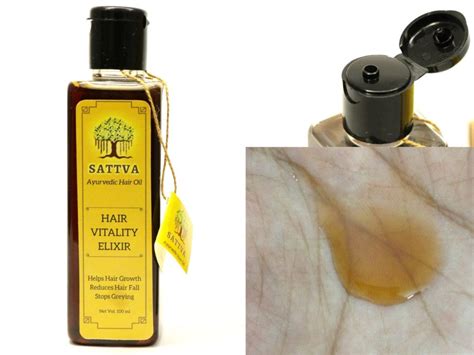Carrier oils, as the name suggests, are transporting vehicles for essential oils, aiding their absorption and dispersion. These naturally derived oils, extracted from plant sources, offer a multitude of benefits for hair health and serve as the perfect foundation for a comprehensive hair care routine.

Types of Carrier Oils for Hair
1. Argan Oil: Hailing from Morocco, Argan oil is a rich source of vitamin E, fatty acids, and antioxidants. It nourishes the hair shaft, promoting shine and combating dryness.
2. Coconut Oil: A tropical treasure, Coconut oil is renowned for its moisturizing and protective properties. It effectively seals in moisture, preventing breakage and split ends.
3. Jojoba Oil: Extracted from the seeds of the jojoba plant, Jojoba oil mimics the sebum produced by our scalp. It balances oil production, prevents hair loss, and enhances hair growth.
4. Olive Oil: A Mediterranean staple, Olive oil is rich in vitamins A, D, and K, as well as antioxidants. It strengthens hair, improves elasticity, and soothes an irritated scalp.
5. Almond Oil: Derived from sweet almonds, Almond oil contains vitamin E, fatty acids, and minerals. It promotes hair growth, reduces breakage, and adds shine.
Benefits of Using Carrier Oils for Hair
1. Moisturizing: Carrier oils create a protective barrier on the hair shaft, preventing moisture loss and keeping it hydrated.
2. Nourishing: Rich in vitamins, minerals, and fatty acids, carrier oils provide essential nutrients to the hair and scalp, promoting overall hair health.
3. Strengthening: Carrier oils strengthen the hair shaft, reducing breakage and split ends, leaving hair looking stronger and healthier.
4. Soothing: Some carrier oils, such as Argan oil and Olive oil, possess anti-inflammatory properties that soothe an irritated scalp and reduce dandruff.
5. Hair Growth: Certain carrier oils, like Jojoba oil and Almond oil, have been shown to promote hair growth by stimulating blood circulation in the scalp.
How to Use Carrier Oils for Hair
1. Pre-Shampoo Treatment: Apply carrier oil to your hair and scalp an hour before shampooing. Wrap your hair in a towel for maximum absorption.
2. Hot Oil Treatment: Heat carrier oil slightly and massage it into your scalp and hair. Leave it on for 30 minutes to an hour before washing.
3. Split End Repair: Apply a few drops of carrier oil to split ends to seal them and prevent further damage.
Choosing the Right Carrier Oil for Your Hair Type
- Dry Hair: Choose oils with high moisturizing properties, such as Argan oil, Coconut oil, or Olive oil.
- Oily Hair: Opt for oils that can balance oil production, such as Jojoba oil, Almond oil, or Tea Tree oil.
- Damaged Hair: Select oils that are rich in nutrients and have restorative properties, such as Argan oil, Olive oil, or Avocado oil.
Safety Considerations
- Perform a patch test before using any carrier oil to rule out any allergic reactions.
- Avoid applying carrier oils too close to the scalp, as it can clog hair follicles.
- Always use carrier oils diluted with water or essential oils to prevent irritation.
Conclusion
Carrier oils are a versatile and effective addition to any hair care routine, providing a wealth of benefits for hair health. By understanding the different types of carrier oils and their specific properties, you can tailor your hair care regimen to suit your unique hair needs.
Additional Tips
- DIY Hair Masks: Create hair masks by blending carrier oils with essential oils that target specific hair concerns, such as lavender oil for relaxation or rosemary oil for hair growth.
- Scalp Massage: Massage carrier oils into your scalp to improve blood circulation and promote hair growth.
- Hot Oil Treatment: Heat carrier oils slightly and apply them to your hair to enhance absorption and effectiveness.
Common Questions
1. How often should I use carrier oils for hair?
Use carrier oils once or twice a week for optimal results.
2. Can I leave carrier oils in my hair overnight?
It is not recommended to leave carrier oils in your hair overnight, as they can clog hair follicles.
3. Are all carrier oils safe for hair?
While most carrier oils are generally safe for hair, it is advisable to perform a patch test before using any new oil.
Research and Statistics
- A study published in the Journal of Cosmetic Dermatology found that Argan oil significantly improved hair elasticity and reduced breakage.
- According to the National Institutes of Health, Coconut oil has been shown to prevent protein loss in hair, reducing damage and breakage.
- A study published in the International Journal of Trichology reported that Jojoba oil promoted hair growth by stimulating blood circulation in the scalp.
Creative Applications
- Hair Serum: Create a hair serum by blending a few drops of carrier oil with essential oils for a targeted hair treatment.
- Conditioner: Enhance the moisturizing properties of your conditioner by adding a few drops of carrier oil.
- Carrier Oil Blend: Mix different carrier oils to create a custom blend that suits your specific hair needs.
